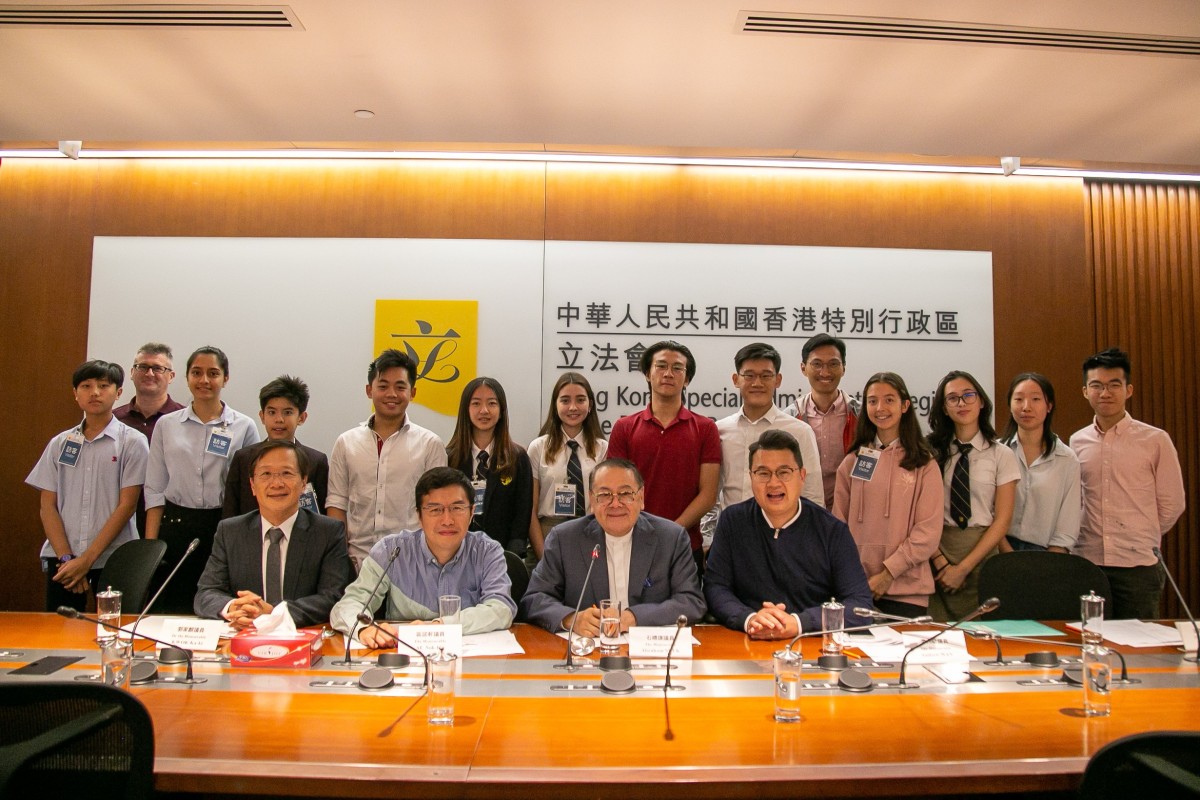
Representatives of the Hong Kong Green Schools Alliance condemned the project as massively damaging to the environment and hugely overpriced
 Students from the Hong Kong Green Schools Alliance with lawmakers.
Students from the Hong Kong Green Schools Alliance with lawmakers. International secondary school students in Hong Kong have slammed the government’s ambitious development project, “Lantau Tomorrow Vision”. In a meeting with legislative councillors on Tuesday, they said it was “not environmentally enlightened” and “ruinously expensive”.
Twelve student representatives of the Hong Kong Green Schools Alliance expressed concerns about the plan’s environmental impact. The alliance is part of the global school network, which aims to address climate change and promote sustainability.
The project was introduced by Chief Executive Carrie Lam Cheng Yuet-ngor in her policy address last year. Under Lam’s plan, 1,700 hectares of artificial islands will be built at an estimated cost of HK$624 billion. Students criticised it for failing to meet performance, cost and time requirements. They also urged legislators to step in to halt funding for a Feasibility Study, which they believe would indirectly give the project the green light.
“The project is poorly justified by the government. Those artificial islands contradict Hong Kong’s progressive vision for environmental sustainability,” one student said.
At the meeting, lawmakers praised the students for making a “much stronger case than the government”. Legislator Andrew Wan Siu-kin said he and the students were “allies” on objecting to the project, but he pointed out that it would be difficult to change the government’s mind. “Even though public opinion is not on the government’s side, we do see quite often that the government insists on the wrong policies,” Wan said.
Another legislator, Kwok Ka-ki, pledged to reflect students’ opinions in committee meetings next year.
In the meantime, legislators advised students to expand their network to include more schools, and get members of the public involved to increase their bargaining power. They also gave students a contact list, in case they need help for their future campaigns.
Tiffany Wong, 18, who graduated from Renaissance College this summer, filed the written complaint to the Public Complaints Office that led to the meeting. She felt it did not go very well. She said the lawmakers had failed to provide useful pointers on how to promote their campaign.
“The lawmakers pretty much gave us excuses and false hope in a way, although I kind of expected the meeting to end like that,” she said.
Opinion: Why we need to support the Hong Kong government's new land reclamation project
Kristy Yip, of King George V School, felt the council members were a little patronising, and had doubts about the effectiveness of taking their campaign to the public.
“They congratulated us and said we did a good job, which I think we really did, but it doesn’t tell us what our next step should be,” said Kristy.
“The government currently isn’t really listening to the people, even though they’ve made a big scene. Why should we believe that if we took the campaign to the public, the government would do anything else?” she asked.